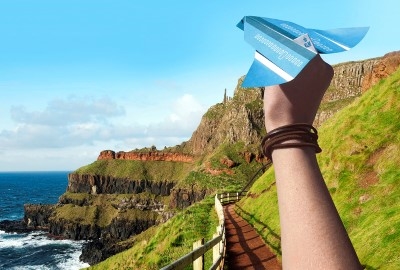SAF is part of the solution, but more is needed
The amount of Sustainable Aviation Fuel (SAF) being produced at rates airlines could buy is tiny compared to the industry’s energy needs. In an extensive analysis, Forbes Magazine concludes that the demand for SAF will exceed supply in the coming years. Also, the analysis concludes, other investments in other ways to decarbonize aviation are needed.

Sustainable aircraft fuel, or SAF, is one encouraging development for a more sustainable airline future. SAF uses fossil fuel by-products or plant-based sources to create fuel for existing aircraft engines. With enough SAF, world airlines could become almost immediately net carbon neutral because their energy needs would no longer require any new oil drilling.
Demand exceeds supply
The demand for SAF needed far exceeds supply, even though multiple airlines and aviation companies have announced partnerships to increase the production of SAF. Another problem is that today’s SAF won’t be competitive with normal aviation jet fuel until 2037.
“SAF will play a smaller role than the current hype suggests”, says the report. Airlines will have to continue investing in more fuel-efficient aircraft and in transformative technologies. These could include electric aircraft. Forbes: “Hydrogen-powered aircraft have more promise for bigger planes and longer flights, but the world still needs to learn how to deliver and store this fuel source. But importantly, SAF is not the only path to net neutrality”, the report concludes.


